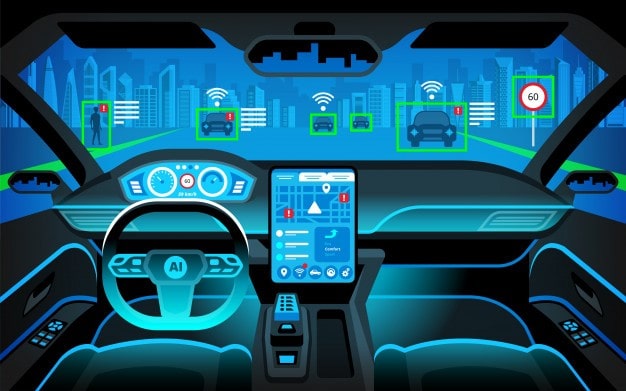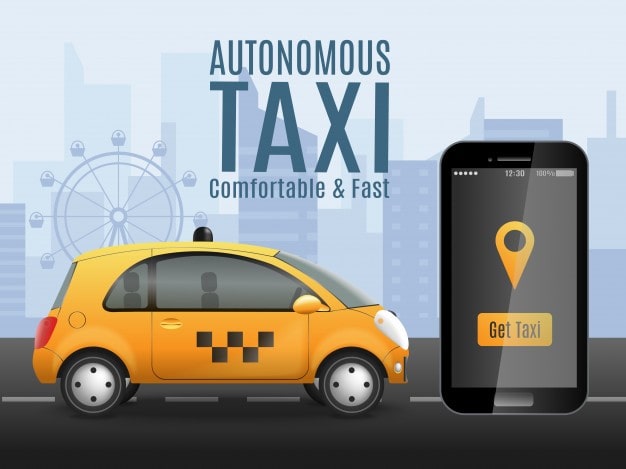Robots are coming to the kitchen—what that could mean for society and culture
World’s First Window Cleaning Robot Reports to New York City Skyscraper Transforming the Industry Globally
AI In Transportation: Artificial Intelligence in the Transportation Industry
AI in Transportation and Logistics
AI in Logistics Industry: Key Benefits and Use Cases (AI use cases in transportation)
Just imagine the world without a transport facility! If you want to travel long distances, how would you go?
And, if a leading manufacturing company has to transport goods to its customer locations, then how it will do that without transport and logistics facilities?
I think you understood the significance of the transportation industry. It’s a mandatory need for both individuals as well as businesses.
Do you believe or not the history of the initiatives across the transportation industry has exploded in 1787 when the steamboat has invented. Later in the 19th century with the invention of the bicycle, the industry moved to its next level. After that motor car era had come in the 1890s, trains in the 19th century, and finally aircraft in 1903. Manufacturing of more vehicles that meet all human transportation needs based on market demand.
This was the major reason behind the advancements in this sector using innovative technologies. Automobile or vehicle manufacturers are focusing on spreading the wings of artificial intelligence across the sector to gain from the increasing demand.
Artificial Intelligence (AI) is one of the best technology supporting the transportation industry in many ways. AI-enabled applications in transportation have transformed the transportation sector tremendously. AI Applications in Transportation are making our lives easier, safer, and more efficient.
Artificial intelligence in public transport, private transport, and personal transport has progressed in such a level that vehicles are moving without any assistance from humans. Thanks to Artificial Intelligence (AI) technology. Artificial intelligence technology in transportation is helping the industry to enhance safety, reduce unexpected accidents, reduce traffic, carbon emission, and also lower complete financial expenses.
On the businesses front, Applications of Artificial Intelligence in Transport increases productivity, automation level, and overall excels sales indicators.
USM, the best mobile app development company, has immense experience in using artificial intelligence technology to develop futuristic travel apps that make trips more effortless. In addition, being one of the best AI app development companies, we also build enterprise-level AI solutions for helping logistics firms track their fleet in real-time.
Would you like to know what we delivered to the transportation sector? Please go through one of our significant AI in transportation case study.
Recommend: How Automotive Industry Is Evolving With Artificial Intelligence?
AI technology in transport will bring huge revolutions, not only to the vehicles but also to the complete ecosystem. Let’s take some examples of AI use cases in transportation.
The Role of AI in Logistics and Supply Chain Management
Top 6 AI use cases in the transportation sector
Artificial intelligence use cases or applications in transportation let you know why the transportation business players are looking to invest in artificial intelligence technology. Here, we briefed out a few top use cases of artificial intelligence in the transportation industry. Let’s have a look at the below AI in transportation examples.
#1 AI for autonomous or self-driving vehicles

Will transportation become autonomous?
Japan has already launched its first version of autonomous vehicles in the country. Accordingly, the United States transportation & logistic industries are also holding the power of AI to spread self-driving trucks for reducing operational costs. Likewise, the global developed and developing markets are adopting AI in their transportation rapidly.
AI is playing a major role in the manufacture of self-driving vehicles. We all know that the biggest automobile manufacturers like Nissan, Toyota, Hyundai, and so many vehicle manufacturers will introduce their model of driverless vehicles.
It is just the beginning, but we can’t imagine the market with the complete expansion of AI in the development of driverless cars.
Be ready to see a drastic change in transportation using artificial intelligence!
#2 AI Applications In Transportation

Artificial Intelligence applications in transportation for managing traffic is one of the popular use case of the technology. AI for traffic management is one of the best AI applications for the traffic management system. Artificial intelligence systems predict and reduce traffic congestion and improve road safety.
The AI-powered traffic management system provides greater flexibility to driverless cars in the future. However, the integration of the IoT-enabled high-resolution cameras would also bring a big revolution in the sector.
Hence, AI, together with cloud and IoT, will completely reduce wait times at traffic signals and reduce the traffic over the roads.
#3 Reduce passenger wait times

AI mobile apps for Android and iOS are allowing users to book taxis online and ensure safe trips. Using computer vision and Data Lake techniques, transport apps are making the best data-driven decisions for reducing the waiting time of passengers who booked their service.
#4 Drone Taxis
It is one of the advantages of AI in the transportation industry. Drone taxis are one of the best innovative AI applications in transportation. Drone systems have already been expanded in delivery systems. The technology developments would also help to design and manufacture intelligent drone taxies soon. No wonder in it.
#5 Remote controlled cargo ships
It is also one of the best answers for How Will AI Impact the Transportation Industry. Along with the benefits of Artificial intelligence in public transport systems, for the past few years, cargo ships will also be controlled remotely using artificial intelligence.
Logistics departments can monitor their cargos and stay in connection all the time to track their safe arrival to destinations. It is one of the best use cases of AI in transportation. Hence, it is expected that AI will drive autonomous cargo ships to fullest in the future.
#6 AI in Trucking
The truck transport business is one of the fields where the implementation of AI is growing rapidly. Artificial intelligence and machine learning technologies are improving freight efficiencies. As the market trends are predicting that AI technology and automation are the future of the transportation industry, self-driving trucks are more crazy innovations among others. Hence, AI in transportation and logistics offers more fruitful business results to the service providers.
Future of AI In Transportation
The growth and advantages of AI in the transportation industry cannot be explainable. The practical use of A.I. in transportation will 100% ensure profitable business for organizations across the transportation sector.
AI has already had its grip on changing industrial processes and the transportation sector is also greatly impacted by AI. As we discussed, the examples of AI implementation in transport will give unbelievable results to service providers than expected. With the craze towards autonomous vehicles, increasing concern towards safety and security, and focus on reducing operational costs, the demand and adoption of AI technology in transportation are growing increasingly.
According to the market reports, it is estimated that the AI transportation market will be valued at $3.5 billion by 2023. In particular, North America (US, Mexico, and Canada) region is anticipated to contribute more to the AI in the transportation market value.
Here are a few more business advantages of AI in transportation.
Advantages Of AI In Transportation
Let’s discuss a few artificial intelligence opportunities that are delivered to the transportation sector.
How has technology changed transportation?
#1 Smart Logistics Functions
Leveraging real-time sensor data and previous data regarding traffic, weather, waiting time, stop maintenance, etc., the transportation system can navigate the routes smartly.
#2 Forecasting Vehicle Maintenance
The future of AI in transportation for forecasting vehicle maintenance would be promising. The AI systems can forecasts vehicle maintenance with the help of data collected from smart sensors. You can use telematics solutions to monitor the vehicles in real-time. AI solutions will send alerts and conditions of the vehicles so that you can save yourself from probable hazards.
#3 Track planner with traffic expectation and real-time updates
While traffic congestions are inescapable, AI can predict the traffic jams and accordingly adjust your path.
#4 Intelligent Staff Management
To advance the productivity and safety of drivers, intelligent driver behavior monitoring apps will be useful. Using data captured by the IoT sensors, you can manage your fleet through data-controlled dashboards for smart trucks, ships, and trains connectivity.
Hence, AI in the transportation industry is quite impressive. The impact of AI-enabled applications in transportation are resourceful. USM, the best #AI development company, is a leader in offering quality AI-based solutions and artificial intelligence services to customers across various industries.
Are searching for a reliable AI solutions provider or artificial intelligence Service Company, then you’re in a perfect place. Get in touch with USM!
[contact-form-7]
Developing underwater robots to venture deep below polar ice
VoicePilot framework enhances communication between humans and physically assistive robots
How drone attacks are changing the rules and the costs of the Ukraine war
IMTS 2024 Product Preview
Biohybrid robots controlled by electrical impulses in mushrooms
Robotic arm can be used to perform remote echocardiograms, study shows
How to Evaluate Jailbreak Methods: A Case Study with the StrongREJECT Benchmark
When we began studying jailbreak evaluations, we found a fascinating paper claiming that you could jailbreak frontier LLMs simply by translating forbidden prompts into obscure languages. Excited by this result, we attempted to reproduce it and found something unexpected.
Read More